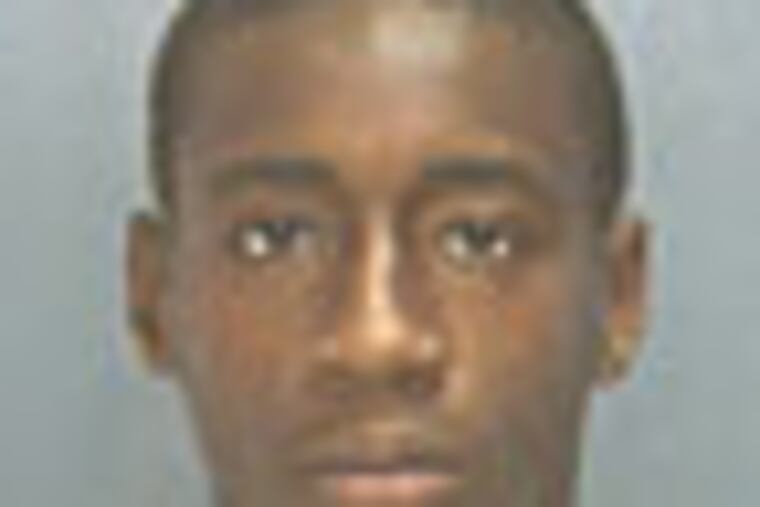Confession can be used at trial in death of Sabina Rose O'Donnell
The confession that an 18-year-old Donte Johnson made to police in June 2010, in which he described the rape and killing of Sabina Rose O’Donnell, can be used as evidence in Johnson’s trial this week, a judge ruled Monday. Johnson’s attorneys fought to keep the statement out of the trial, arguing that Johnson, now 20, functions at the cognitive level of an 11- or 12-year-old and could not have understood his rights when he confessed.

The confession that an 18-year-old Donte Johnson made to police in June 2010, in which he described the rape and killing of Sabina Rose O'Donnell, can be used as evidence in Johnson's trial this week, a judge ruled Monday.
Johnson's attorneys fought to keep the statement out of the trial, arguing that Johnson, now 20, functions at the cognitive level of an 11- or 12-year-old and could not have understood his rights when he confessed.
"The detective speaks to Mr. Johnson and he thinks he's talking to an adult, when in reality he's speaking to a child," said attorney Gary Server.
Gerald Cooke, a forensic psychologist who recently spent two days administering a battery of evaluations to Johnson, testified in Common Pleas Court Monday that Johnson has a series of intellectual difficulties and shows signs of organic brain damage. Johnson was held back three times in school and was in special education and speech therapy classes until he dropped out of high school. His IQ of 73 makes him close to being considered mentally retarded, Cooke said.
But Common Pleas Court Judge Glenn B. Bronson agreed with the detailed testimony from two Philadelphia police officers, who said Johnson was sober, coherent, and well aware of what was happening as they took him into custody.
Jury selection is set to begin Tuesday in the trial of Johnson, who was arrested about two weeks after O'Donnell's beaten and strangled body was found nude in a vacant lot behind the apartment she shared with her stepfather on the edge of Northern Liberties. O'Donnell, a waitress and dancer with dreams of being a model or artist, was a few weeks shy of her 21st birthday.
Johnson sat hunched forward in court on Monday, wearing a black dress shirt, tie, and khakis. He stared straight ahead, mostly expressionless, occasionally glancing at his attorneys. When he answered questions from Bronson, he spoke in a low, quiet mumble.
Detective Thorston Lucke testified that before Johnson gave police a detailed account of his attack on O'Donnell in June 2010, he first offered a few different versions of the story. As he began to realize the evidence police had against him, his story grew progressively incriminating, Lucke said.
Lucke was not even supposed to interview Johnson, he said, but went into the interview room when he saw Johnson lounging with his feet on the chair across from him. After Lucke asked him to take his feet off the chair, Johnson initiated a conversation and denied any involvement in O'Donnell's death.
Johnson seemed interested in what was going to happen to him, so Lucke ended up explaining the basics of DNA evidence.
"He was very inquisitive," Lucke said. "He was asking how it works, how long it takes."
After that, Johnson said that if his DNA was on O'Donnell, it was because he knew her and had dated her, Lucke testified, drawing sharp gasps from several of O'Donnell's relatives who were in court. Johnson then claimed to have had sex with O'Donnell a day or two before she died, Lucke said. Soon afterward, Lucke said, he advised Johnson of his rights and told him that DNA testing can show when a sample was left on someone's body.
At that, Lucke said, Johnson became nervous and started shifting in his seat. He then claimed he happened to come across O'Donnell's body after she was killed and had masturbated over it.
"I told him his story did not make sense," Lucke said. "I told him I'd be willing to take a statement from him if he was telling the truth."
Johnson agreed and then confessed that he saw O'Donnell biking home and wanted to steal her bike. "I shouldn't have put my hands on her," he said, according to the statement.
In addition to raising concerns over his mental difficulties, the defense may also plan to argue that Johnson was under the influence of drugs or alcohol when he confessed. Police officers who dealt with Johnson that day described him as relatively calm and sober. But Johnson's mother, Syreeta, and her boyfriend, George Jones, testified that Johnson was smoking pot and drinking liquor when he surrendered to police. Under questioning from Assistant District Attorney Richard Sax, Jones agreed that Johnson smoked pot habitually.
Cooke, who was hired by the defense this year to perform a thorough evaluation of Johnson, said Johnson tried to present himself positively. He minimized his school problems, downplayed prior arrests for assault and for threatening to kill a teacher, and claimed he was home with his family at the time O'Donnell was killed.
As for the confession, Johnson told Cooke that while he understood some of what police said when they advised him about his rights, he didn't understand all of it.
"Understanding and comprehension is not all or nothing — it's on a continuum," Cooke said. "I don't know what he understood and what he did not understand."
Contact Allison Steele at 215-854-2641 or asteele@phillynews.com, or follow on Twitter @AESteele.